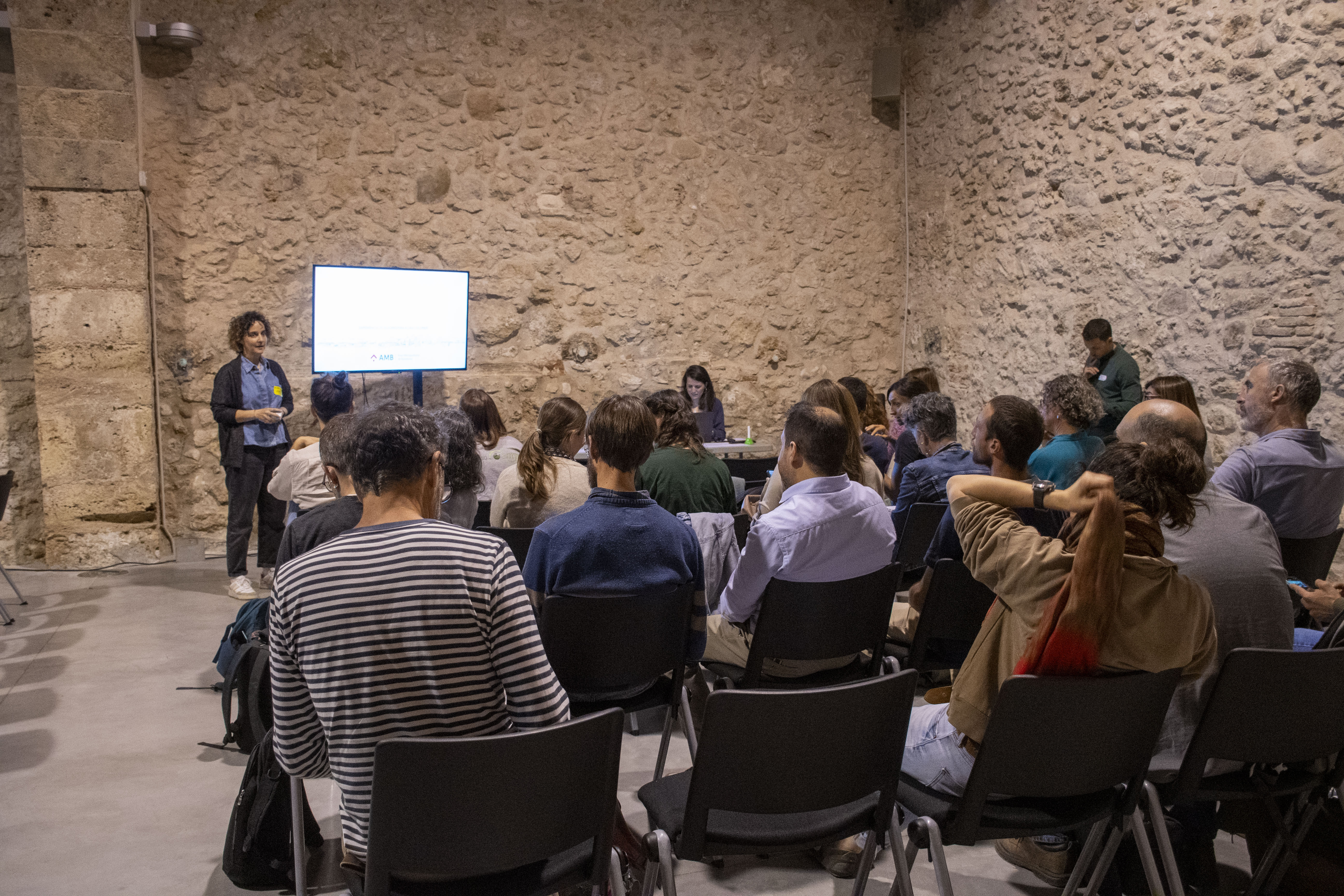The “Territory and Resilience” fair, organised by Life eCOadapt50 and ResAlliance, showcases innovative projects for adapting agriculture and forests to climate change - Life eCOadapt50

Actions were presented at one of the corners of the Cava Centre.
Nearly forty practical solutions being carried out in various parts of Catalonia that can be replicated elsewhere in the region or potentially implemented in the coming years were presented over the two days of the fair. According to Núria Parpal, coordinator of Life eCOadapt50, 'It is important to create synergies and connect socio-economic agents with the various stakeholders in the territory who are already implementing good practices and actions to adapt to climate change in agriculture and forestry, to encourage others to implement these actions too'.
The fair was therefore a dynamic space for exchange, where promoters of 38 innovative agricultural, forestry, agro-livestock and tourism practices shared their experiences with around a hundred participants, including public administration representatives interested in promoting actions to foster the territory's resilience. The solutions presented included the sustainable production of food through regenerative agriculture (The Regen Academy); the transformation of local wood into sustainable materials (Forest Hub of Catalonia); and support for entrepreneurs to develop their livestock activities in forest management (Room Test of the Vall del Ges); or the creation of local product brands (Cigronet of Senan), among many others.
The programme also included spaces for debate with the participants and showcases of two of the initiatives: MeFiTu (Pau Costa Foundation), an environmental education workshop focused on landscape management to reduce the risk of forest fires; and the Department of Agriculture, Livestock, Fishing and Food of the Generalitat of Catalonia's vineyard soil improvement programme.
Mariona Borràs, coordinator of the ResAlliance LandLabs and ambassador of LandLab Catalunya, as well as head of the Social Base and Community Area of the Pau Costa Foundation, highlights “the massive response of the solution promoters who have participated in the fair to showcase their initiatives, demonstrating the commitment of stakeholders in the region to finding solutions to enhance the resilience of the landscape in the agricultural, forestry, and tourism sectors".
Living Labs are experimental spaces designed to promote innovation
Within the framework of the ResAlliance project, this was the third event organized by the LandLab of Catalonia, integrated by the Pau Costa Foundation, the Forest Science and Technology Centre of Catalonia and the Institute for Agro-Food Research and Technology (IRTA).The Catalan LandLab's next event is a field trip on 27 May to the municipality of Aiguamúrcia, where two initiatives presented at 'Territory and Resilience' will be visited: one focusing on the role of microbiology in soil fertility and crop vitality, and the other on silvicultural treatments near the Santes Creus Monastery to transform a white pine forest into an agroforestry system.
Regarding Life eCOadapt50, sixteen Living Labs have been set up in the participating territories since the start of the project in 2023, with the involvement of over 400 local social and economic stakeholders. The climate vulnerability of these territories has been assessed, and 76 actions have already begun to be promoted in forestry, agriculture, livestock farming, fishing and tourism. Additionally, 21 actions have already been launched, with around 40 more in the proposal phase. In addition, the project is developing training aimed for agents involved in the various sectors.
